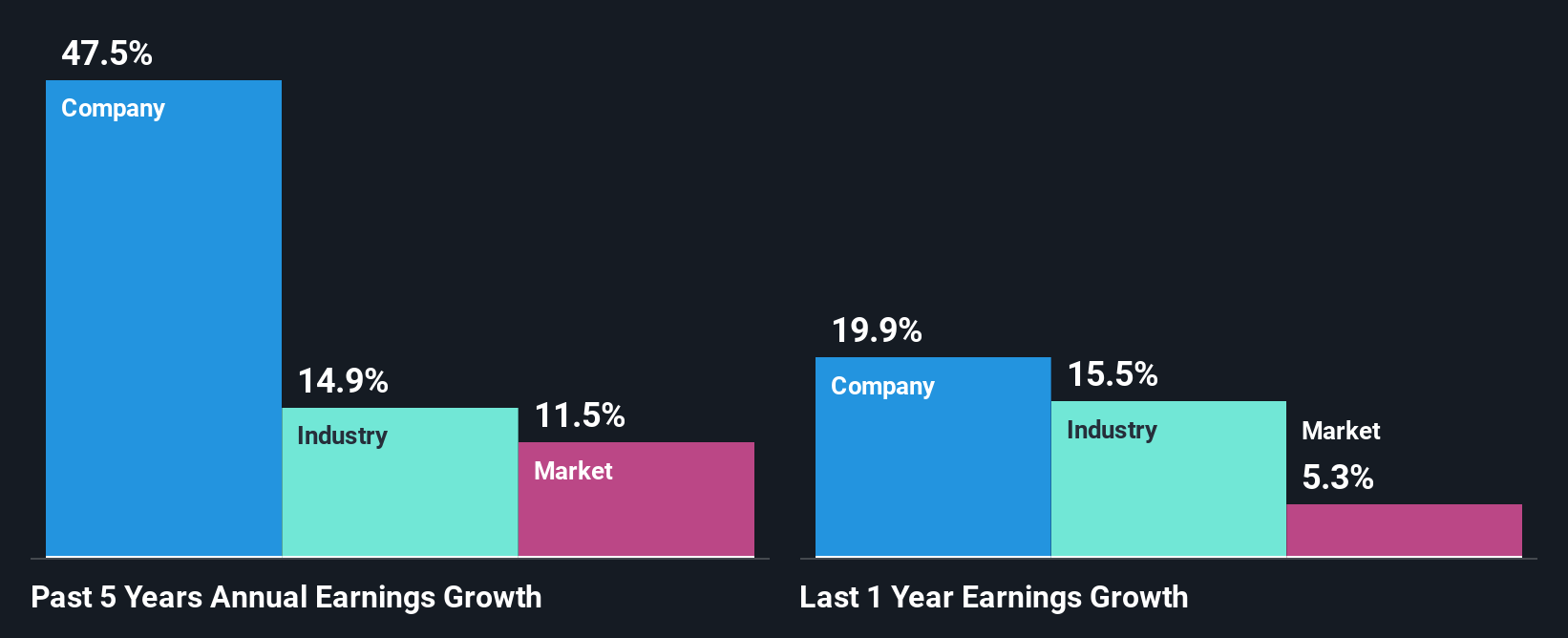With its stock down 7.7% over the past three months, it is easy to disregard Merit Medical Systems (NASDAQ:MMSI). However, the company’s fundamentals look pretty decent, and long-term financials are usually aligned with future market price movements. In this article, we decided to focus on Merit Medical Systems’ ROE.
Return on equity or ROE is an important factor to be considered by a shareholder because it tells them how effectively their capital is being reinvested. Simply put, it is used to assess the profitability of a company in relation to its equity capital.
How To Calculate Return On Equity?
Return on equity can be calculated by using the formula:
Return on Equity = Net Profit (from continuing operations) ÷ Shareholders’ Equity
So, based on the above formula, the ROE for Merit Medical Systems is:
8.6% = US$122m ÷ US$1.4b (Based on the trailing twelve months to March 2025).
The ‘return’ is the yearly profit. One way to conceptualize this is that for each $1 of shareholders’ capital it has, the company made $0.09 in profit.
View our latest analysis for Merit Medical Systems
What Has ROE Got To Do With Earnings Growth?
Thus far, we have learned that ROE measures how efficiently a company is generating its profits. Based on how much of its profits the company chooses to reinvest or “retain”, we are then able to evaluate a company’s future ability to generate profits. Assuming all else is equal, companies that have both a higher return on equity and higher profit retention are usually the ones that have a higher growth rate when compared to companies that don’t have the same features.
A Side By Side comparison of Merit Medical Systems’ Earnings Growth And 8.6% ROE
When you first look at it, Merit Medical Systems’ ROE doesn’t look that attractive. We then compared the company’s ROE to the broader industry and were disappointed to see that the ROE is lower than the industry average of 12%. Despite this, surprisingly, Merit Medical Systems saw an exceptional 48% net income growth over the past five years. Therefore, there could be other reasons behind this growth. For instance, the company has a low payout ratio or is being managed efficiently.
As a next step, we compared Merit Medical Systems’ net income growth with the industry, and pleasingly, we found that the growth seen by the company is higher than the average industry growth of 15%.

Earnings growth is a huge factor in stock valuation. It’s important for an investor to know whether the market has priced in the company’s expected earnings growth (or decline). This then helps them determine if the stock is placed for a bright or bleak future. If you’re wondering about Merit Medical Systems”s valuation, check out this gauge of its price-to-earnings ratio, as compared to its industry.
Is Merit Medical Systems Making Efficient Use Of Its Profits?
Merit Medical Systems doesn’t pay any regular dividends to its shareholders, meaning that the company has been reinvesting all of its profits into the business. This is likely what’s driving the high earnings growth number discussed above.

Conclusion
On the whole, we do feel that Merit Medical Systems has some positive attributes. Despite its low rate of return, the fact that the company reinvests a very high portion of its profits into its business, no doubt contributed to its high earnings growth. That being so, a study of the latest analyst forecasts show that the company is expected to see a slowdown in its future earnings growth. To know more about the company’s future earnings growth forecasts take a look at this free report on analyst forecasts for the company to find out more.
New: Manage All Your Stock Portfolios in One Place
We’ve created the ultimate portfolio companion for stock investors, and it’s free.
• Connect an unlimited number of Portfolios and see your total in one currency
• Be alerted to new Warning Signs or Risks via email or mobile
• Track the Fair Value of your stocks
Have feedback on this article? Concerned about the content? Get in touch with us directly. Alternatively, email editorial-team (at) simplywallst.com.
This article by Simply Wall St is general in nature. We provide commentary based on historical data and analyst forecasts only using an unbiased methodology and our articles are not intended to be financial advice. It does not constitute a recommendation to buy or sell any stock, and does not take account of your objectives, or your financial situation. We aim to bring you long-term focused analysis driven by fundamental data. Note that our analysis may not factor in the latest price-sensitive company announcements or qualitative material. Simply Wall St has no position in any stocks mentioned.














